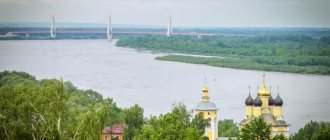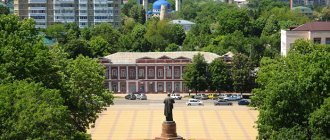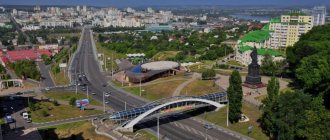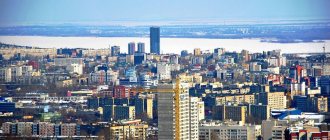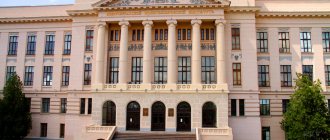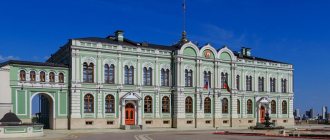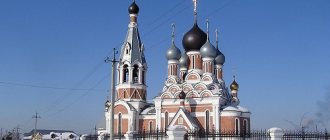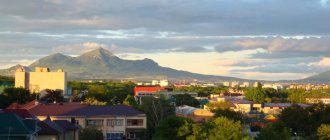Unecha on the map of Russia
You can find Unecha on the map and get directions using your navigator using the coordinates (52.845115, 32.670676). In the north is the city of Surazh, in the northeast is Bryansk. In the east - Pochep, in the southeast - Trubchevsk, in the south - Starodub, in the southwest - the village of Klimovo and to the south - Novozybkov, in the west - Klintsy.
About the area
Unecha is a small town in the Bryansk region. It got its name from the Unecha River, on the banks of which it is located. The city of Unecha owes its birth to the construction of the sixth section of the Polesie railways, which connected the ancient Russian cities of Gomel and Bryansk. One of the 11 intermediate stations on this section was the Unecha station.The administrative subordination of Unecha changed several times. From the opening of the station in 1887 until the end of 1917, the territory of the modern Unecha district belonged to the Mglinsky, Surazhsky and Starodubsky districts of the Chernigov province. The situation was even more complicated with the determination of the administrative position of Art. Unecha. Several houses of Unecha residents at that time were located on land bordering two provinces (Chernigov and Oryol) and three counties (Starodubsky, Mglinsky and Surazhsky).
The Unechtsy joked: when Vasily the bathhouse attendant’s rooster crows, it can be heard in two provinces and three districts. For the same reason, the county was not indicated in the address. They wrote simply: “Unecha station of the Polesie railways of the Chernigov province.”
Since 1919 The administrative and territorial position of Unecha changed several times. It was part of the Gomel and Bryansk provinces, then it was part of the Western and Oryol regions.
On August 16, 1940, by decree of the Presidium of the Supreme Soviet of the RSFSR, the workers' settlement of Unecha received the status of a city.
On July 5, 1944, on the basis of the Decree of the Presidium of the USSR Soviet, the Bryansk region was formed. Its boundaries included 26 western districts of the Oryol region, incl. and Unechi district.
Since then, the administrative-territorial position of Unecha has not changed.
Today, Unechsky district occupies an area of 1147.5 square meters. km. The area is home to 33.4 thousand people. Of these, 22.6 thousand people live in the city.
Unechi district has its own coat of arms, which was approved by the decision of the session of the district Council of People's Deputies No. 2-305 of September 2, 2004.
The coat of arms of the Unechi district is a red shield, divided into two parts, the upper part of which is the coat of arms of the city of Bryansk, which indicates the subordination of the Unechi district to the subject of the Russian Federation - the Bryansk region.
In the lower part of the coat of arms, in its center, in a circle formed by a golden ear of wheat and a gear, connected at the bottom by a golden ribbon with the inscription “Unechi district”, there is an image of a diesel locomotive on a green background, symbolizing the origin of the center of the district of the city of Unechi as a city of railway workers. The wheat ear represents developed agricultural production, and the gear represents the industry of the region.
The red color symbolizes right, strength, courage and bravery, as well as the color of shed blood for the Orthodox faith and free will. The green color represents a direct connection between the Unechi region and its forest wealth.
Since January 1, 2006, the Unechsky district has been divided into 8 rural settlements and 1 urban settlement.
Unechi district is one of the industrial and agricultural areas.
Let's decide together
The garbage has not been removed, there is a hole in the road, the streetlight is not on? If you encounter a problem, report it!
Attractions
The church in honor of the Annunciation of the Blessed Virgin Mary was originally built in 1927. During the Great Patriotic War it was destroyed. For a long time, believers did not have a temple, and finally in 1991 the foundation stone was consecrated at the site of construction of a new temple. In 1998, the new temple opened its doors to visitors.
“Unecha City Park of Culture and Recreation named after. Ural Volunteers" opened in March 1965, in memory of the Ural volunteers who participated in the liberation of the city of Unecha.
On May 1, 1928, a club was opened for residents of the city of Unecha, which was named in honor of the International Workers' Day. For 90 years it has been the center of the cultural life of the area.
The Unecha Museum of Local Lore opened in 1987. The opening was timed to coincide with the centenary of the founding of the Unecha station. The museum is nestled in a former bank building, built in 1930. About seventeen thousand people visit the museum every year.
Monument to the soldiers who liberated the city of Unecha, who drove the Nazis out of the city in 1943. Installed on the Alley of Heroes on May 9, 1974. The joint construction was carried out by city enterprises. The monument is a T-34 tank mounted on a pedestal. On the front side of the marble slab it is written: “To the soldiers-liberators from the working people of the city of Unecha.”
City today
In the city there are the Unecha locomotive depot, a carriage depot, the Unecha restaurant, a sauna, the Electron sports complex, the May 1st Club, CJSC Wolfram Company, JSC Resistor, JSC Unecha Vegetable Drying Plant, mechanical, central district hospital. There are five schools in the city. There is an intracity bus service. The Unecha relay station provides television and radio broadcasting to the entire western part of the Bryansk region. It is also planned to build a large mining and processing plant for processing zirconium in the area. The Unecha popcorn plant continues its active operations, supplying a number of regions with hot corn, including Moscow.
According to data for 2007, the Unechi district includes 114 settlements. The population exceeds 47 thousand people. There are 49 educational institutions in the region, including: 7 preschools, 36 secondary schools, a Children's Creativity Center, two vocational schools, a branch of the Moscow State Technological Academy; 27 medical institutions, 160 shops, 72 cultural institutions. 400 enterprises, organizations, institutions, structural divisions, public organizations and associations are registered in the district.
Klintsy is the second largest city in terms of population
This city is the second most populous in the region. As of 2021, almost 63 thousand people lived in it; together with the suburbs, the total number reached 70 thousand. The largest factory in Russia for the production of truck cranes is located here. Other industrial areas are also well developed, so Klintsy shows a steady trend of development. Thanks to this, the population has also been constantly growing in recent years. By nationality, the majority of people here are Russians.
Bryansk is the largest regional city
The number of residents of Bryansk is, according to data for 2021, 405 thousand. It is one of the oldest settlements in the region, first mentioned in written sources back in 1146. The number of residents has decreased in recent years, although a positive trend is still observed periodically: in 2010 and 2017. there was an increase.
Bryansk attracts specialists in the field of industry, primarily in the field of metal processing. It is a large industrial city, thanks to which the economic situation here is favorable. This settlement is the most important railway junction in the economic direction. It is connected by routes to Moscow, Orel, Gomel, Vyazma, as well as other major locations. This is attractive to potential migrants, as it greatly facilitates the eventual relocation.
Notes
- ↑ 123
www.gks.ru/free_doc/doc_2016/bul_dr/mun_obr2016.rar Population of the Russian Federation by municipalities as of January 1, 2021 This is a draft article on the geography of the Bryansk region. You can help the project by adding to it.
Excerpt characterizing Unecha
In the evening, Mikhail Ivanovich, sent from the prince, came to Princess Marya for a letter from Prince Andrei, which was forgotten in the living room. Princess Marya submitted the letter. Although it was unpleasant for her, she allowed herself to ask Mikhail Ivanovich what her father was doing. “They’re all busy,” said Mikhail Ivanovich with a respectfully mocking smile that made Princess Marya turn pale. – They are very worried about the new building. “We read a little, and now,” Mikhail Ivanovich said, lowering his voice, “the bureau must have started working on the will.” (Recently, one of the prince’s favorite pastimes was working on the papers that were supposed to remain after his death and which he called a will.) - And Alpatych is sent to Smolensk? - asked Princess Marya. - Why, he’s been waiting for a long time. When Mikhail Ivanovich returned with the letter to the office, the prince, wearing glasses, with a lampshade over his eyes and a candle, was sitting at the open bureau, with papers in his far-off hand, and in a somewhat solemn pose was reading his papers (remarks, as he called them), which were to be delivered to the sovereign after his death. When Mikhail Ivanovich entered, there were tears in his eyes, memories of the time when he wrote what he was now reading. He took the letter from Mikhail Ivanovich’s hands, put it in his pocket, put away the papers and called Alpatych, who had been waiting for a long time. On a piece of paper he wrote down what was needed in Smolensk, and he, walking around the room past Alpatych, who was waiting at the door, began to give orders. - First, postal paper, do you hear, eight hundred, according to the sample; gold-edged... a sample, so that it will certainly be according to it; varnish, sealing wax - according to a note from Mikhail Ivanovich. He walked around the room and looked at the memo. “Then personally give the governor a letter about the recording. Then they needed bolts for the doors of the new building, certainly of the style that the prince himself had invented. Then a binding box had to be ordered for storing the will. Giving orders to Alpatych lasted more than two hours. The prince still did not let him go. He sat down, thought and, closing his eyes, dozed off. Alpatych stirred. - Well, go, go; If you need anything, I will send it. Alpatych left. The prince went back to the bureau, looked into it, touched his papers with his hand, locked it again and sat down at the table to write a letter to the governor. It was already late when he stood up, sealing the letter. He wanted to sleep, but he knew that he would not fall asleep and that his worst thoughts came to him in bed. He called Tikhon and went with him through the rooms to tell him where to make his bed for that night. He walked around, trying on every corner. Everywhere he felt bad, but the worst thing was the familiar sofa in the office. This sofa was scary to him, probably because of the heavy thoughts that he changed his mind while lying on it. Nowhere was good, but the best place of all was the corner in the sofa behind the piano: he had never slept here before. Tikhon brought the bed with the waiter and began to set it up. - Not like that, not like that! - the prince shouted and moved it a quarter away from the corner, and then again closer. “Well, I’ve finally done everything over, now I’ll rest,” the prince thought and allowed Tikhon to undress himself. Frowning in annoyance from the efforts that had to be made to take off his caftan and trousers, the prince undressed, sank heavily onto the bed and seemed to be lost in thought, looking contemptuously at his yellow, withered legs. He didn’t think, but he hesitated in front of the difficulty ahead of him to lift those legs and move on the bed. “Oh, how hard it is! Oh, if only this work would end quickly, quickly, and you would let me go! - he thought. He pursed his lips and made this effort for the twentieth time and lay down. But as soon as he lay down, suddenly the whole bed moved evenly under him back and forth, as if breathing heavily and pushing. This happened to him almost every night. He opened his eyes that had closed. - No peace, damned ones! - he growled with anger at someone. “Yes, yes, there was something else important, I saved something very important for myself in bed at night. Valves? No, that's what he said. No, there was something in the living room. Princess Marya was lying about something. Desalle—that fool—was saying something. There’s something in my pocket, I don’t remember.” - Quiet! What did they talk about at dinner? - About the prince, Mikhail... - Shut up, shut up. “The prince slammed his hand on the table. - Yes! I know, a letter from Prince Andrei. Princess Marya was reading. Desalles said something about Vitebsk. Now I'll read it. He ordered the letter to be taken out of his pocket and a table with lemonade and a vitushka - a wax candle - to be moved towards the bed and, putting on his glasses, he began to read. Here only in the silence of the night, in the faint light from under the green cap, did he read the letter for the first time and for a moment understand its meaning.
